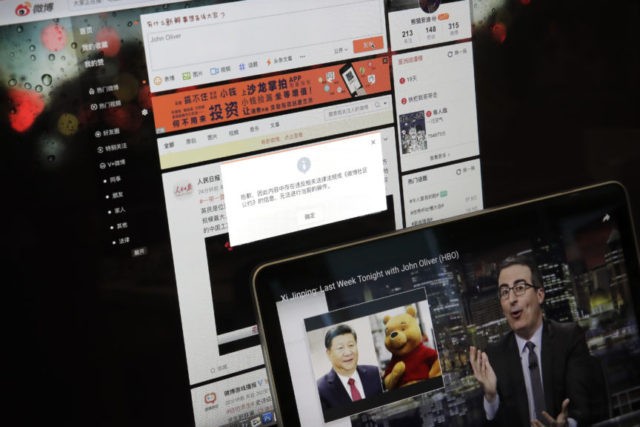Chinese government censors have shut down dozens of major social media accounts for publishing “politically harmful information,” the South China Morning Post reported on Tuesday. Some of these accounts had millions of followers.
Officials banned the accounts from Weibo, essentially China’s version of Twitter. The company that owns Weibo announced on Monday that it had suspended over fifty accounts in accordance with “relevant laws and regulations.”
One of the targets the SCMP named is Yu Jianrong, “a popular outspoken liberal intellectual with more than seven million followers.” Yu said officials did not tell him which of his Weibo posts violated China’s draconian censorship laws, adding he has not posted any explicitly political content for the past two years, having curtailed his activism in response to a previous tightening of censorship laws.
The SCMP explained that China defines “politically harmful information” very loosely as “not only content that violates the law or the constitution, undermines national unity and incites hatred, but also bans spreading rumors and publishing ‘adverse information’ that could undermine ‘social morality.’”
Another target, journalist Wang Xiaolei, is believed to have been suspended for writing posts about classical poetry and popular fiction that supposedly contained “veiled allusions to current events.”
Previous Chinese censorship purges have shut down tens of thousands of accounts the government thought were “creating chaos” and deleted thousands of smartphone apps that conveyed “inappropriate or harmful” information. The speech police use algorithms that flag social media posts on forbidden topics such as the U.S.-China trade war and the arrest of Huawei executive Meng Wanzhou.
The communist regime reprogrammed web browsers last week to block news about the “996” protests against their brutal “9am to 9pm, 6 days a week” work schedules.
The Communist Party’s tight control of nominally “independent” and “privately-owned” social media platforms is worth keeping in mind as Chinese influence in the tech world grows.
For example, Australia’s ABC News commented recently on the growing importance of Weibo and another platform popular in China, WeChat, to Australian politicians eager to reach large communities of Chinese-Australian voters in their districts. ABC noted there are significant security and privacy concerns around Australian politicians using Chinese social media, plus the problem of Chinese censors taking control of Australian political discourse.
Analyst Fergus Ryan of the Australian Strategic Policy Institute warned that Australian politicians and voters who use Weibo and WeChat will be unable to talk about “certain sensitive topics that Beijing doesn’t like people discussing,” notably including the “three Ts” of Tiananmen Square, Tibet, and Taiwan. He cited an instance of a Canadian lawmaker whose WeChat post on the Hong Kong democracy movement was censored.
This raises the possibility that China could help some Australian candidates by suppressing their opponents’ ability to use Chinese social media platforms, or that Australian politicians will toe Beijing’s line on various subjects to avoid the possibility of a social media ban during campaigns.

COMMENTS
Please let us know if you're having issues with commenting.